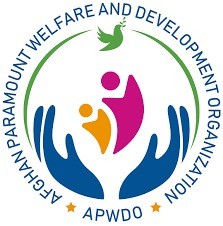Peace-building & Governance
At APWDO, we believe peace is not an outcome—it’s the foundation for everything. That’s why we apply a Triple Nexus approach, integrating emergency assistance, peacebuilding, and sustainable development in every project, every district, and every dialogue.
“We don’t separate aid from peace. We combine both in every project, every village, and every conversation.”
Our Integrated Approach
We deliver peacebuilding alongside humanitarian services—from food and livelihoods to legal support and education.
We engage with Shuras, elders, women’s groups, youth, and religious leaders—the real gatekeepers of trust and legitimacy in Afghan communities.
We restore dignity by combining conflict mediation, human rights awareness, and community empowerment under one umbrella.
Our Results (2023–2024)
Thanks to the generous support of FCDO and UNDP, APWDO has:
Established and mobilized 40 Community-Based Peacebuilding Committees (CBPCs) and 10 Human Rights Protection Networks across four provinces.These committees and networks were volunteer-based, and continue to function beyond project closure, demonstrating strong local ownership and sustainability.
Resolved over 350 local conflicts, including disputes over water, land, and family-related tensions—through community-led mediation.
Empowered 2,135 community members (1,010 women and 1,125 men) through structured peacebuilding training, dialogue forums, and awareness campaigns.
Delivered livelihood support to 200 women, equipping them with vocational skills like tailoring, embroidery, and small business development to promote economic inclusion.

Community members actively engage in an interactive Peacebuilding and Conflict Resolution training session, working together to strengthen unity and create lasting solutions for harmony.

Community members come together in a powerful dialogue, united in their commitment to building peace and fostering understanding for a stronger, more harmonious future.

Facilitated the resolution of a four-year conflict in Jawzjan Province by initiating a community-driven water canal and tank project—bringing safe water to 250 families and transforming conflict into cooperation.
Integrated local media into peacebuilding initiatives to promote positive messaging, raise awareness, and amplify stories of reconciliation, especially through radio and local coverage.
We don’t just include marginalized groups—we ensure they lead local peace efforts. Our model is rooted in participatory governance, where community voices drive the solution, not just the problem definition.
APWDO’s peacebuilding work is not about temporary fixes. It’s about equipping communities with the tools, confidence, and connections to transform tension into trust and conflict into cooperation.

